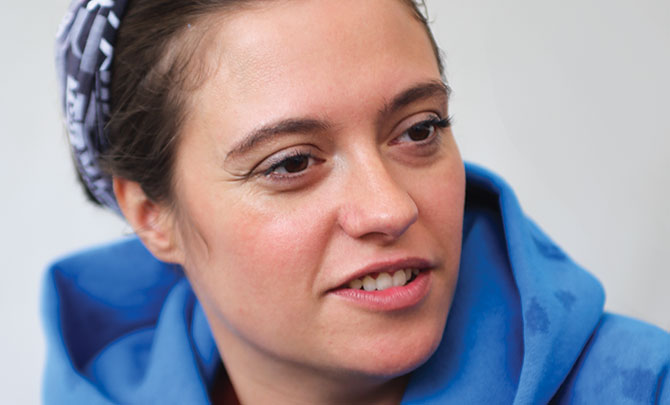Interview: I was hungry - Reform Magazine
The food poverty writer and campaigner Jack Monroe talks to Stephen Tomkins at Greenbelt
‘This morning, small boy had one of the last Weetabix, mashed with water, with a glass of tap water to wash it down with. “Where’s Mummy’s breakfast?” he asks, big blue eyes and two-year-old concern. I tell him I’m not hungry, but the rumblings of my stomach call me a liar. But these are the things that we do.’
So wrote Jack Monroe in July 2012, as part of a longer blog post, ‘Hunger Hurts’, which described the pain and distress of the poverty they (Monroe’s chosen pronoun) found themselves in. The post was read by two million people, rather more than the usual audience for Monroe’s reports of Southend council meetings.
The following year, Monroe published a recipe for a carrot and kidney bean soup, after they realised they could cook it for less than the cost of the cheapest tin of tomato soup and wanted to share the insight. When it gained a hundred times as many readers as the previous post, breadline recipes became the focus of the blog. A series of recipe books followed.
Since then, Monroe has become a prominent anti-poverty campaigner. Reform talked to them at their second appearance at Greenbelt festival.
Can you start off by telling us something about the family you were brought up in?
My parents are both Baptist Christians, so I was brought up in the Church. They’re both foster carers as well, so I grew up in a household where we always opened our doors to people in need, there was always space for an extra person at the table. They literally embodied the song: ‘I was hungry and thirsty, were you there?’ They were always, consistently there.
What was that like for you?
As a kid, I just had this revolving door of traumatised children coming in and out of my life. As an adult, I think it’s made me be very empathetic – I give pretty much everyone a chance to prove themselves, because I know that if you invest time into people, no matter how difficult or troubled, or how badly they play up, I think that everybody deserves a chance to be a good person. That informs a lot of the work that I do. I’m starting to do work with prisons, pupil referral units, children in care, because I not only cook and write cookbooks, I want to make sure that’s something every person has a chance to do and be good at and everyone has a chance to be heard and listened to and reformed.
What kind of work are you currently doing with young people?
I’m doing a cookery programme that I want to roll out into care authorities. It’s in its trial period at the moment. Lots of things involving local councils never come off because there’s so much red tape around it. But on an individual level, I’m working with a couple of pupil referral units, going in and teaching a cookery course. I’m also doing work with the children’s commissioner, with their website, making a series of recipes for children in care. Basically it’s just listening to people, saying: ‘What it is it you need? What will help your organisation?’ and then trying, within the best of my abilities, to deliver it.
Was life financially hard for your family or were you comfortably off?
I was never aware until I was an adult how financially difficult my childhood had been. Quite often, my parents didn’t eat dinner with us, and it took me being a parent to realise that’s because they didn’t have any. …
___
This is an extract from an article that was published in the November 2018 edition of Reform















Submit a Comment